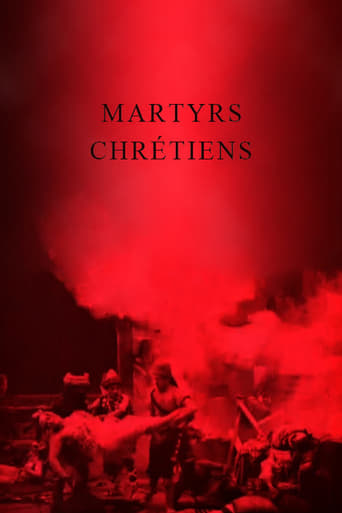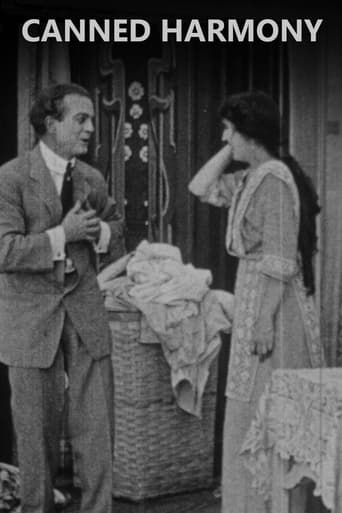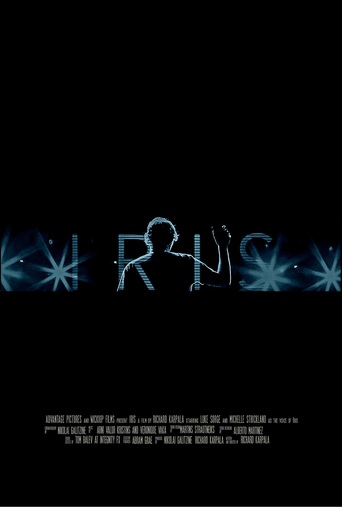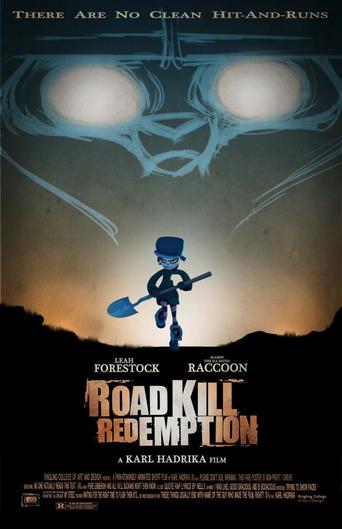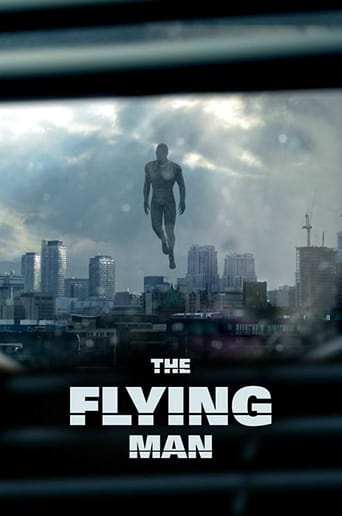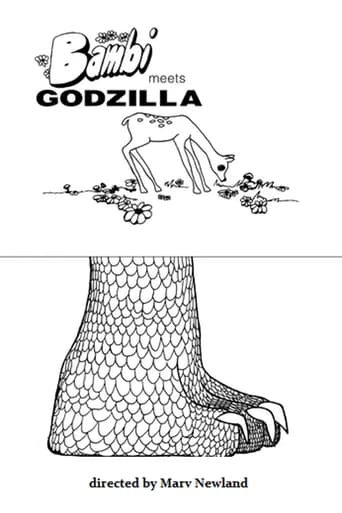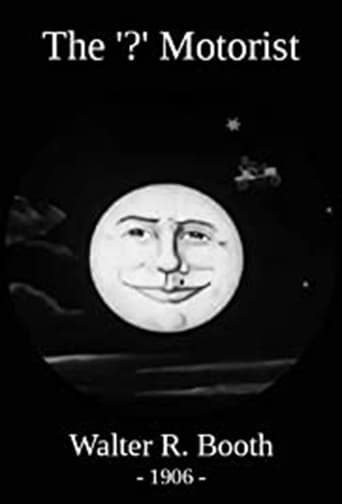

The '?' Motorist (1906)
A magical glowing white motorcar ignores policemen, drives up buildings, flies through outer space, and can transform into a horse and carriage.
Watch Trailer
Cast


Similar titles
Reviews
As Good As It Gets
When a movie has you begging for it to end not even half way through it's pure crap. We've all seen this movie and this characters millions of times, nothing new in it. Don't waste your time.
Fanciful, disturbing, and wildly original, it announces the arrival of a fresh, bold voice in American cinema.
As somebody who had not heard any of this before, it became a curious phenomenon to sit and watch a film and slowly have the realities begin to click into place.
One of the unfortunate things about early cinema is that we can only judge that which is currently available to us. The vast majority of silent films are now considered lost, and though some directors' later fame ensured that their films endured (Hitchcock for one), some, such as Robert W. Paul – one of the pioneers of cinema – have been less fortunate. Still Paul has fared better than many of his contemporaries, but much of his work sadly remains lost.R.W Paul was more an engineer than a filmmaker, and at first his only real incentive to produce his own films was to demonstrate their potential. He began by manufacturing replicas of Thomas Edison's revolutionary Kinetoscope in 1894, though by the turn of the century he had set up his own studios in London and was producing short films at a furious rate. After filming such historic events as Queen Victoria's Diamond Jubilee and the ill-fated launch of HMS Bulwark, in 1900 he was commissioned by the army to produce what would now be called a 'recruitment' film, showing what it was like to be in the British army. The finished film, Army Life, was an epic 50 minutes long, making it by far the longest film produced in the world up to that point. Sadly, it's all but lost now, with just a short fragment remaining.From this point on Paul moved away from covering notable occasions and army reenactments, and moved towards short stories, such as those George Méliès was successfully making in France (incidentally, it was Paul who sold Méliès his first camera in 1896). As well as producing an incredibly ambitious adaptation of Charles Dickens' A Christmas Carol – most of which is now tragically lost – in 1901, he would go on to popularise a number of effects over the next few years such as screen wipes, closeups and double exposures. The culmination of this experience over the previous decade was in Paul's most famous film, The '?' Motorist.After watching the short film, certain similarities are obvious between The '?' Motorist and his old customer Méliès' A Trip to the Moon (1902). Though not necessarily more sophisticated, Méliès' space film was longer (14 minutes compared to barely over 2 minutes) and after going to the considerable effort of hand-colouring each of the films' individual frames, it's no surprise that A Trip to the Moon has endured far better than The '?' Motorist. There's certainly a whimsical humour here which is only enhanced by the inspiration for the film – Paul's frustration at being issued a fine for excessive speeding in his motorcar, a crime he tried unsuccessfully to defend himself from.However, though R.W. Paul is the better-known name here, the directing duties were carried out my another character who has become all but forgotten – Walter Booth. Like many of the early filmmakers Booth had begun his career as a magician, and had been collaborating with Paul on some of his more technically impressive films since 1899. By the time of The '?' Motorist in 1906 – his final film with Paul – he was a highly competent director and more than capable of filming some of the challenging effects that were hugely popular with audiences who wanted to see things on the screen which were impossible in real life. He was then recruited by Charles Urban – the most successful film producer and distributor in Britain – where he continued to refine his techniques, and in 1911 made The Automatic Motorist – a more sophisticated remake of The '?' Motorist. It's conceivable that Booth made an appearance in 1901's stop-motion masterclass Undressing Extraordinary – being able to know the exact position to hold as an actor would have required considerable knowledge of the techniques involved – though as no photograph is known to exist of the director we many never know for sure.The '?' Motorist – like many of Paul's films – is a great, charming little film which was still, even in 1906, ahead of much of the cinema in the rest of the world. The title though, is completely nuts. There doesn't seem to be any information on where it came from, but it seems it was the actual title given by Paul, no typos. Its ambiguity certainly gives almost nothing away, and the moment when what seems like a routine runaway film takes a turn as the carriage drives up a building, over the moon and around Saturn's rings cannot have ceased to surprise audiences.With his interest firmly in the mechanics of cinema, Paul's output swiftly reduced after Booth's departure, and by 1910 he had moved away entirely from the film business, concentrating his efforts on more scientific subjects. He died in 1943, living more than long enough to witness cinema emerge as one of the leading forms of entertainment – a form in which he'd played a large role in developing. It's just a shame he's not more widely credited for the advances he made in the medium, certainly in Britain. Maybe one distant day some ambitious director will see the potential in a biographical film about Paul, and it can do for him what Martin Scorsese's Hugo did for Méliès? Or maybe that's just my head in the clouds.
It's entirely likely that pioneer British filmmaker R. W. Paul - who by 1906 was a ten-year veteran of movie-making - was heavily influenced by the French trick photography wizard Georges Melies when he conceived and filmed this frantic little tale. It tells the story of the type of motorist who wouldn't be out of place on the motorways of Britain today. Our speeding anti-hero, sitting in his flashy convertible with a hot chick - with violent tendencies, it has to be said - by his side, blithely runs over a policemen before evading capture by driving up the side of a building and across a convenient carpet of clouds before crash-landing in a court room. The film is entertaining enough - although Melies would undoubtedly have done it better - but the story exists as a vehicle (no pun intended) for the trickery rather than the trickery enhancing the story.
I watched this film on a DVD that was rammed with short films from the period. I didn't watch all of them as the main problem with these type of things that their value is more in their historical novelty value rather than entertainment. So to watch them you do need to be put in the correct context so that you can keep this in mind and not watch it with modern eyes. With the Primitives & Pioneers DVD collection though you get nothing to help you out, literally the films are played one after the other (the main menu option is "play all") for several hours. With this it is hard to understand their relevance and as an educational tool it falls down as it leaves the viewer to fend for themselves, which I'm sure is fine for some viewers but certainly not the majority. What it means is that the DVD saves you searching the web for the films individually by putting them all in one place but that's about it.Anyway, I watched this films having just finished moaning about Paul's weak melodrama Buy Your Own Cherries and found myself facing another film from his company if not him himself. However the difference was wonderful and I found the imagination and pioneering work evident here that I see in Paul's best films. Good on so many levels this film is impressive when you put it in the context of when it was made and how much of a novelty things were then. Not only was film a novelty but so were cars and here we have a film that is impressive as a film and, as a film if you see the difference."As a film", this impressed me because it was inventive and funny and seemed made to entertain me and not just show me what the media can do. The second "as a film" relates to how it is made because, although very dated of course, the effects are all good not only in their use but also in the range of techniques used. Heck, I was even quite taken by how smooth the edit between scenes was. Overall then, although directed by Walter Booth, this film stands as a great example of the early work done in British cinema by Robert Paul and his company.
This old curio is good fun to watch and is very creative in using the techniques available to film-makers at the time. It starts with a car driving along - in itself still something of a novelty then - and the car quickly gets involved in a series of fantastical adventures. It's filled with special effects that are excellent for the era, and that are still entertaining to watch. It gives the feeling of a free-wheeling, uninhibited approach, and yet the quality shows it to have been very carefully made. In its historical context it is also interesting, as a look at attitudes towards automobiles and the changes they brought.



